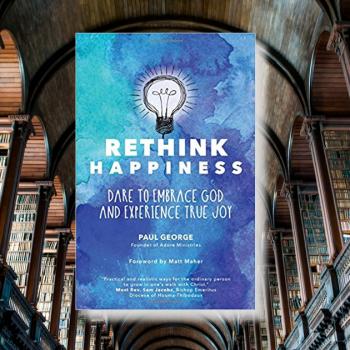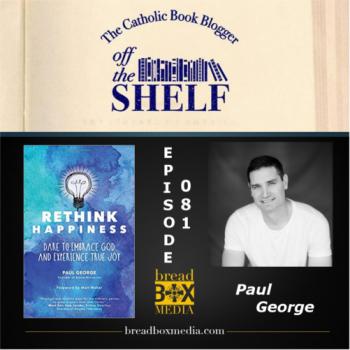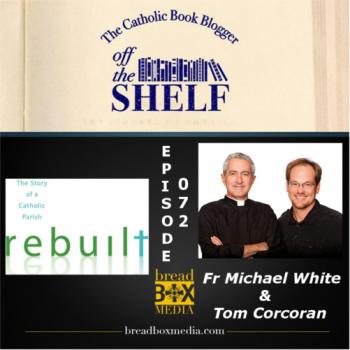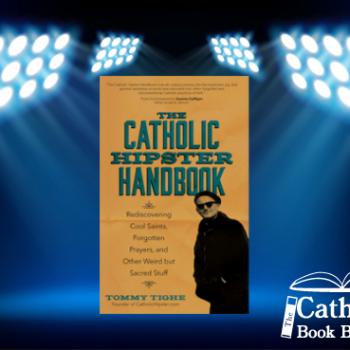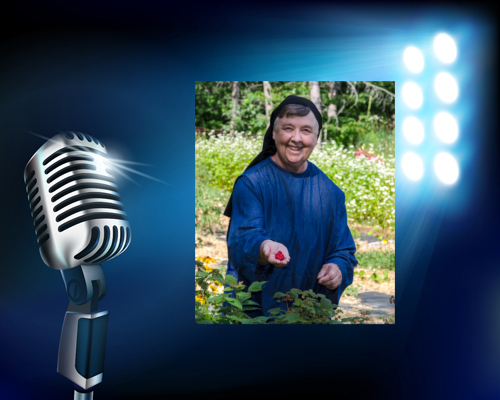 MICHELE: Reading Seasons in My Garden has truly been a spiritual adventure for me-poetry and prayer in every sentence…. as well as leading me to more adventures in my garden- I so enjoyed learning about David Austin roses, that I hope to add some to my garden! You mentioned in your book that you loved nature since childhood… what led you from that ease of enjoying nature “as is” to “formalize” (if you will) that love into the creation of your own gardens… so much so, that you are even willing to battle nature to have the plants that you desire to have in your gardens, even though they may not naturally thrive without a great deal of attention? (I am thinking of the roses and the Japanese beetles, in particular.)
MICHELE: Reading Seasons in My Garden has truly been a spiritual adventure for me-poetry and prayer in every sentence…. as well as leading me to more adventures in my garden- I so enjoyed learning about David Austin roses, that I hope to add some to my garden! You mentioned in your book that you loved nature since childhood… what led you from that ease of enjoying nature “as is” to “formalize” (if you will) that love into the creation of your own gardens… so much so, that you are even willing to battle nature to have the plants that you desire to have in your gardens, even though they may not naturally thrive without a great deal of attention? (I am thinking of the roses and the Japanese beetles, in particular.)
SISTER ELISABETH WAGNER: “Thank you so much for your lovely comments! First, let me say that I don’t try to battle ‘nature’ in the garden, but to work with it, wherever possible. Japanese Beetles are not part of ‘nature’ but an introduced invasive species of sorts, at least here in Maine. And the roses do need attention, but not really that much. I now have a different English rose growing up against the building, and all I do is fertilize it twice a year with an organic mix that also supplies trace elements, and also water it as needed. I use the David Austin mix, if you’re interested.
“Regarding your question, I think that while I very much love nature ‘as is’, I also love nature as found in a garden. Plus I love fresh vegetables, and all kinds of flowers, which includes many kinds not necessarily found in the wild. . . hence, the need for gardens! Plus I love the physical activity it gives, and the pure pleasure of working outdoors in the midst of God’s creation.”
MICHELE: After living in a hermitage for so many years, what is something that you have grown to love so much in this environment (physical or spiritual) that you would hope to never have to live without?
SISTER ELISABETH WAGNER: “Two things: spiritually, the solitude; and physically, the manual labor.”
MICHELE: Would you mind sharing what you miss most (or believe that you miss most) from your life prior to living at the hermitage?
SISTER ELISABETH WAGNER: “That was a long time ago, and I can’t even remember! However, since the Hermitage has become a small community, I can tell you that I miss having my evenings completely alone.”
MICHELE: You mentioned a being at t point when you will need to reduce the number of gardens because the work/labor of love has grown too big. What do you see yourself filling that time with, once the gardens are smaller and more easily managed? Is there hope for another book?
SISTER ELISABETH WAGNER: “Well, since then we have built our permanent chapel, and we now have a postulant, so I’ve been busy with construction details and with formation classes. But, yes, I am working on another book—slowly!”
MICHELE: Time for our signature ending question. This is a blog about books. What books are currently on your bookshelf to read?
SISTER ELISABETH WAGNER: “For lectio, I am slowly working my way through a very fine and wonderful book called Psalm-Shaped Prayerfulness by Margaret Daly-Denton and reading it in conjunction with the Grail Psalter and the NRSV.
“I’ve recently finished another (but very different) wonderful book, All the Light We Cannot See, by Anthony Doerr. Such wonderful writing! I read it very slowly, savoring it, and didn’t want to see it end. I only wish I could write that well!
“I’m also reading Beginning to Read the Fathers by Boniface Ramsey. I’ve actually read from the fathers (and mothers) for decades, but this still is a great overview. And I’m reading a book called The Body Keeps the Score by Bessel Van Der Kolk, on the role of body and affect in trauma. Also rereading Joan Chittister’s Wisdom Distilled from the Daily and Columba Stewart’s Prayer and Community—these are formation-prep reading.
“For light reading I’ve picked up an old copy of Garrison Keilor’s We are Still Married (hilarious and so evocative of the late ‘80s and ‘90s), and James Runcie’s Grantchester mysteries.
“Still to read (I hope!): Vol 1 (in translation) of Adalbert de Vogue’s Critical Study of the Rule of Benedict; Denys Turner’s The Darkness of God: Negativity in Christian Mysticism; and—if I ever get to it—Black Lamb and Grey Falcon: A Journey through Yugoslavia, a classic history from Rebecca West.
“I should add that there are always too many books . . .”
___________________________________________________________________________________________



